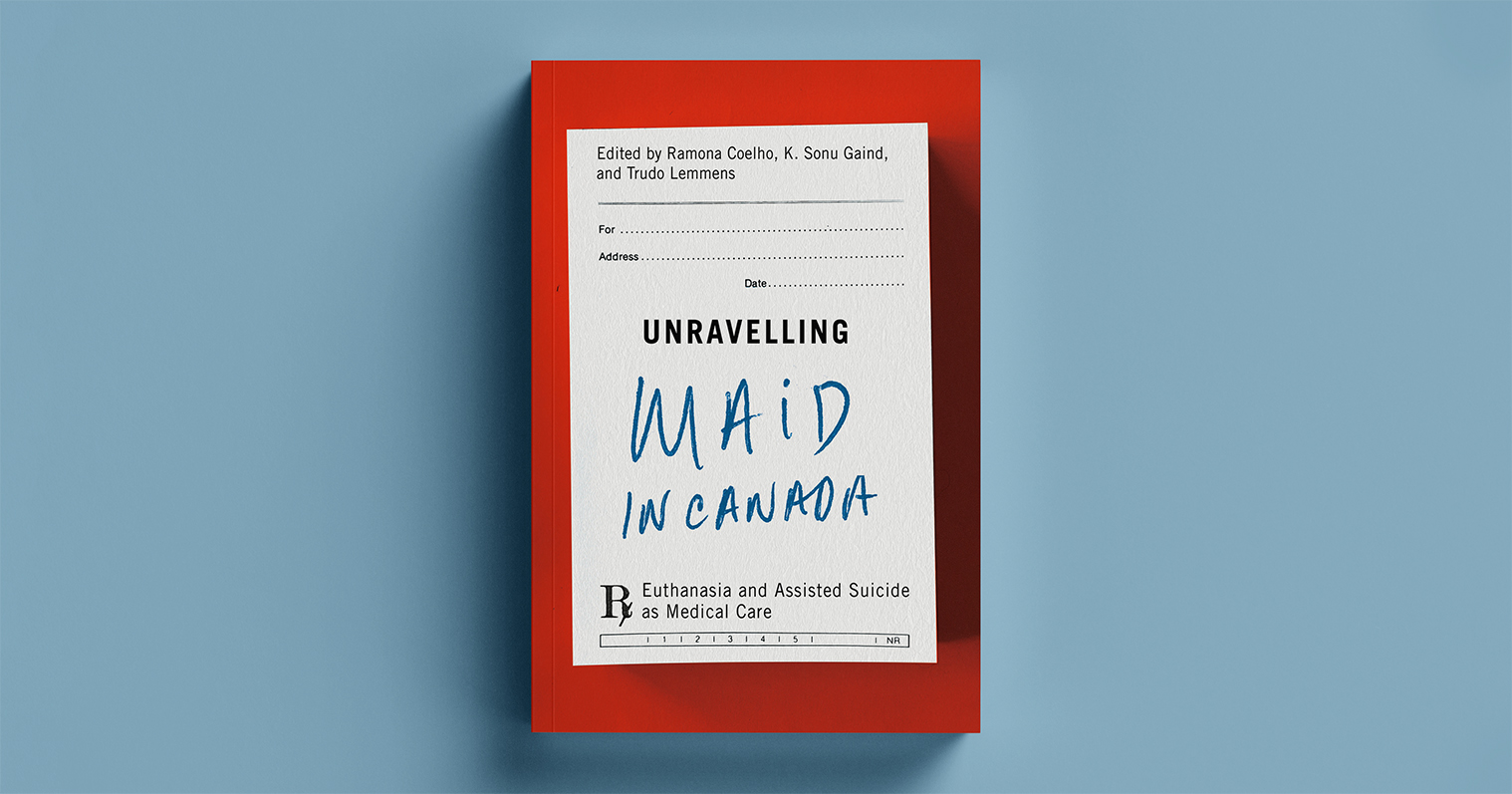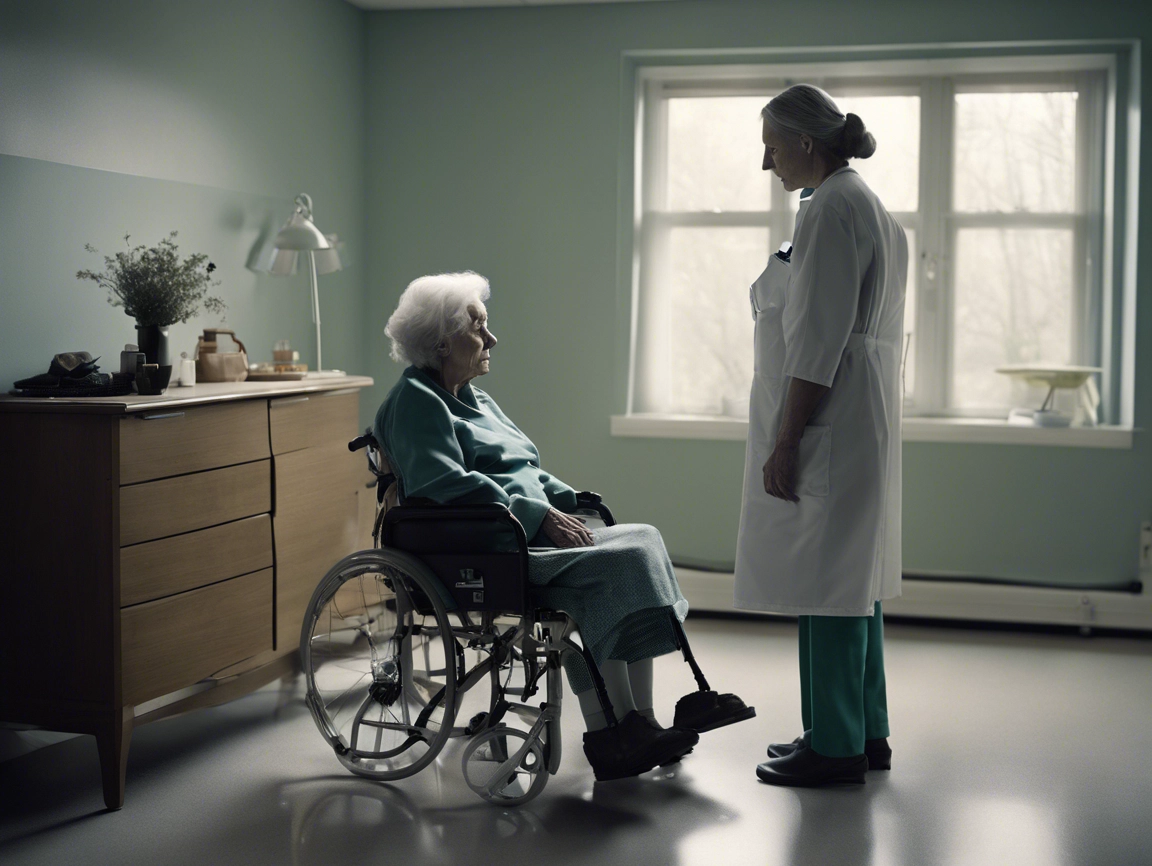Testimony from a practicing physician in geriatrics:
I recently heard the position of those of us who oppose legal homicide compared to “standing in front of a freight train”. I’m here to tell you that the medical profession did not set this train in motion. We don’t want this. But it’s picking up speed. People on both sides of this debate are horrified by the report of the Special Joint Committee on Physician-Assisted Dying. This train is going to crush our patients if it is not stopped.
I work in geriatric medicine with very frail, very old patients. Maybe some of you have parents or grandparents in situations similar to theirs: diminishing physical and cognitive function and loss of autonomy.
You’d think hearing this debate that all medical decisions at the end of life were made by perfectly competent and autonomous patients, in a vacuum, with no influence from fear, loneliness, guilt, shame, stigma or other people. In 30 years’ practice I have rarely seen that happen. We do the best we can to obtain informed consent in spite of all the constraints. But we can’t apply this standard to legal homicide. This is a whole newconcept. We have to raise the bar. I regularly assess competency in geriatric patients but if I had to assess capacity to choose death, there is no way I could be sure there was no outside influence.
I often see elder abuse and family conflict around an aging parent, usually about money. In the U.S. they talk about the risk of greedy heirs influencing patients to request death. I’ve met lots of greedy heirs. They don’t want the inheritance used up paying for nursing care.
I frequently inform patients of a diagnosis of dementia. At that moment they are not in an emotional state to make a rational decision to die – although most later come to terms with their condition and continue to live full lives. But the Joint Committee proposed that people newly diagnosed with dementia be able to write an advanced directive authorizing their future death. And it would be urgent, to do it while they’re still able to make the decision.
People talk about grievous and irremediable medical conditions as if they were something rare. Virtually all my patients have at least one such condition, and most have several: dementia, severe heart disease, lung disease, diabetes, disabling arthritis, neurologic conditions. To “limit” legal homicide to people with a grievous and irremediable medical condition is to open it to thousands of Canadians.
My patients’ problem is not a need for access to death. It’s access to care: medical treatment, home care and residential care. At the hospital where I work, we’ve gone from 45 specialized geriatric beds to none. Try coming to the ER and being seen before you’re exhausted and dehydrated. Try getting a family doctor. Long-term care in Quebec is hopelessly backed up. Couldn’t we explore creative ways of allowing people to stay in their homes? Supporting families to care for aging parents? Giving priority to home care services? The Joint Committee mentions palliative care, mental health care, dementia care… as an afterthought. There’s been a lot of talk about these things before, even resolutions in Parliament… where is the reality? Why are we fast-tracking death?
I believe that the only way to ensure the protection of all Canadians from the effects of Carter is to keep euthanasia and assisted suicide a criminal offence. The opinion polls are against me because there is terrible confusion out there. People think stopping a ventilator is medical aid in dying. There was an Ipsos poll in 2013 asking what people thought “aide médicale à mourir” was, and only one-third knew it was an act to end a person’s life. The Joint committee didn’t even hear groups like ours: we asked, but weren’t invited.
At the very least, two things must be ensured:
Absolute freedom of conscience for all health professionals (including no obligation to refer), and for institutions. The court has said that E/AS cannot be forbidden, not that it must be required of anyone. To remove our freedom of conscience is a totalitarian act, a violation of our Charter rights, and an insult to our professional standards. We need it, not to protect ourselves, but to protect our patients. We are not vending machines who give the scrip or the operation the patient wants: we’re professionals who look after people. Several groups including the Canadian Medical Association have proposed mechanisms that would allow patients to request death directly without involving their doctor. That’s what we need.
The second requirement is stringent protection measures for vulnerable patients. A proposal that is gaining broad acceptance across the spectrum is the Vulnerable Persons Standard (http://www.vps-npv.ca/). It proposes five criteria that must be included in any law in order to provide a minimum of protection for vulnerable Canadians: Equal protection for vulnerable persons, End of life condition, Voluntary & capable consent, Assessment of suffering & vulnerability, and Arms–length authorization, before the fact, by a judge or an expert panel. It’s too late when the patient is dead. The key is to write into the law requirements for protection and consent, including ensuring that all other options are available and have been explored, and that psychosocial factors that could be leading to the request are addressed.
If you choose to go forward, know that people who would not have chosen to die will die because of the law you adopt. Tread very carefully.
C. F. (Montreal, QC)


